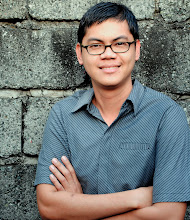Man, we fought mighty China today. No chance. It was never close. No surprise. But they deserve all the merit. We still belong there on top, among the best in Asia.
After beating India in the semis (proving that their 5th round win against the 2nd seed India is no fluke) to reach the finals, the Wesley So led RP chess team lost to host nation and 1st seed, China, 0.5 - 3.5 in the battle for gold medal. Still the silver finish by the Philippines remains one of their best international performance in many years. They came here in Guangzhou seeded sixth and has beaten the 2nd, 3rd and 4th seeded teams in the process. But still, for many, the silver finish will always be cherished as the team who have beaten a team fielded with all of India's best player had to offer with the exception of the current world champ, Vishwanathan Anand who begged off from participating in the event. India bags the bronze medal nonetheless by defeating the game Iranian team, 3.5-0.5 Gutsy old veteran GMs Eugene Torre and Rogelio Antonio came up with surprising results to help the team reach the finals (Honestly, I'm not sure if it's a good or bad sign for chess in the country).
By the way, Joey Antonio didn't play in the gold medal match. He was down with a flu and was reportedly have to fly home immediately for medical examination. Whether it's due to bad climate or food he had eaten, we can never tell. They're in China where unexpected things can happen at any moment.
Rubichess wins TCEC League 1 convincingly
-
The league stage of the Top Chess Engine Championship (Season 25) reaches
the pinnacle of the event – the Premier Division. The defending champion
Stockfis...
7 months ago








